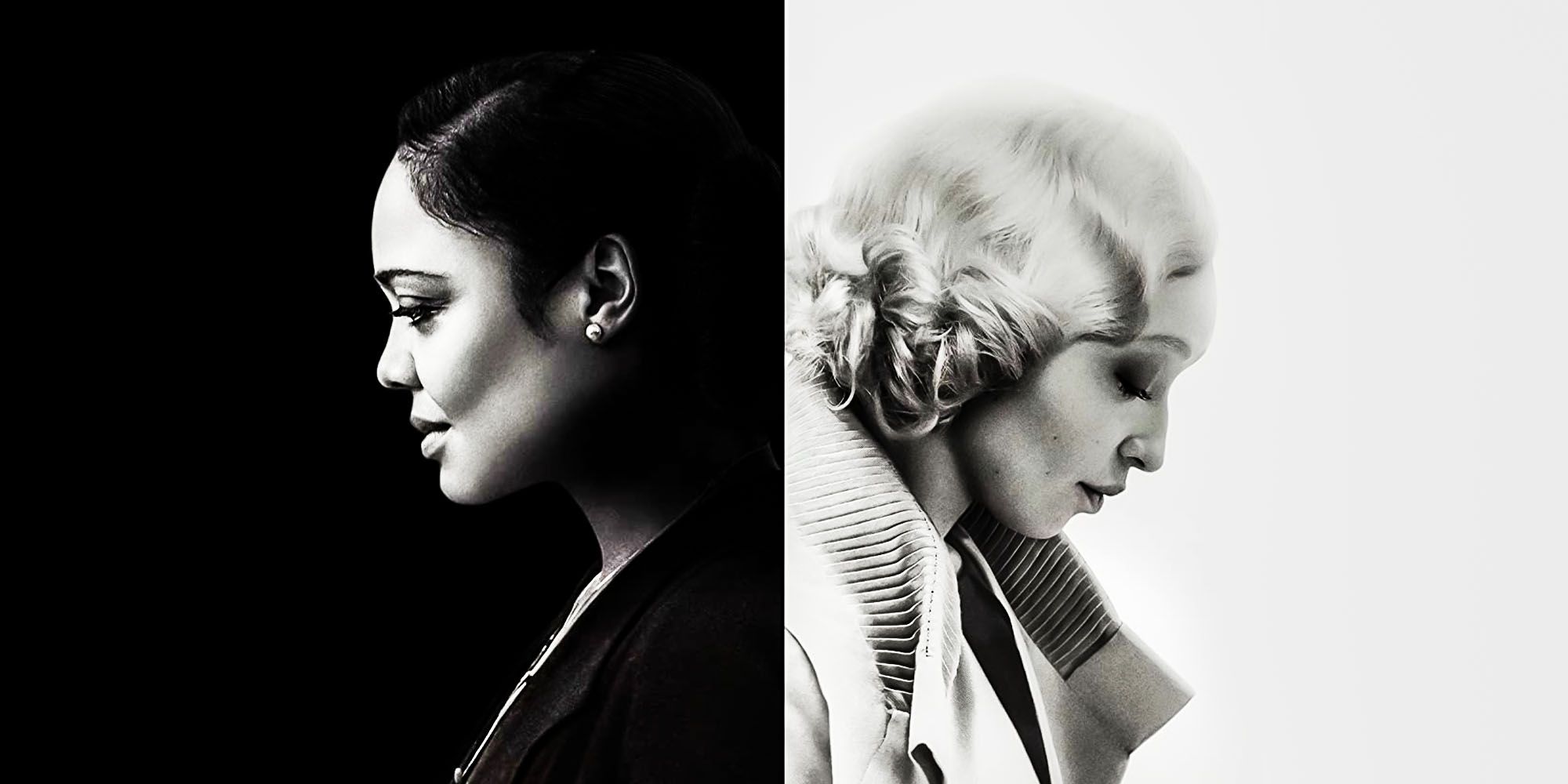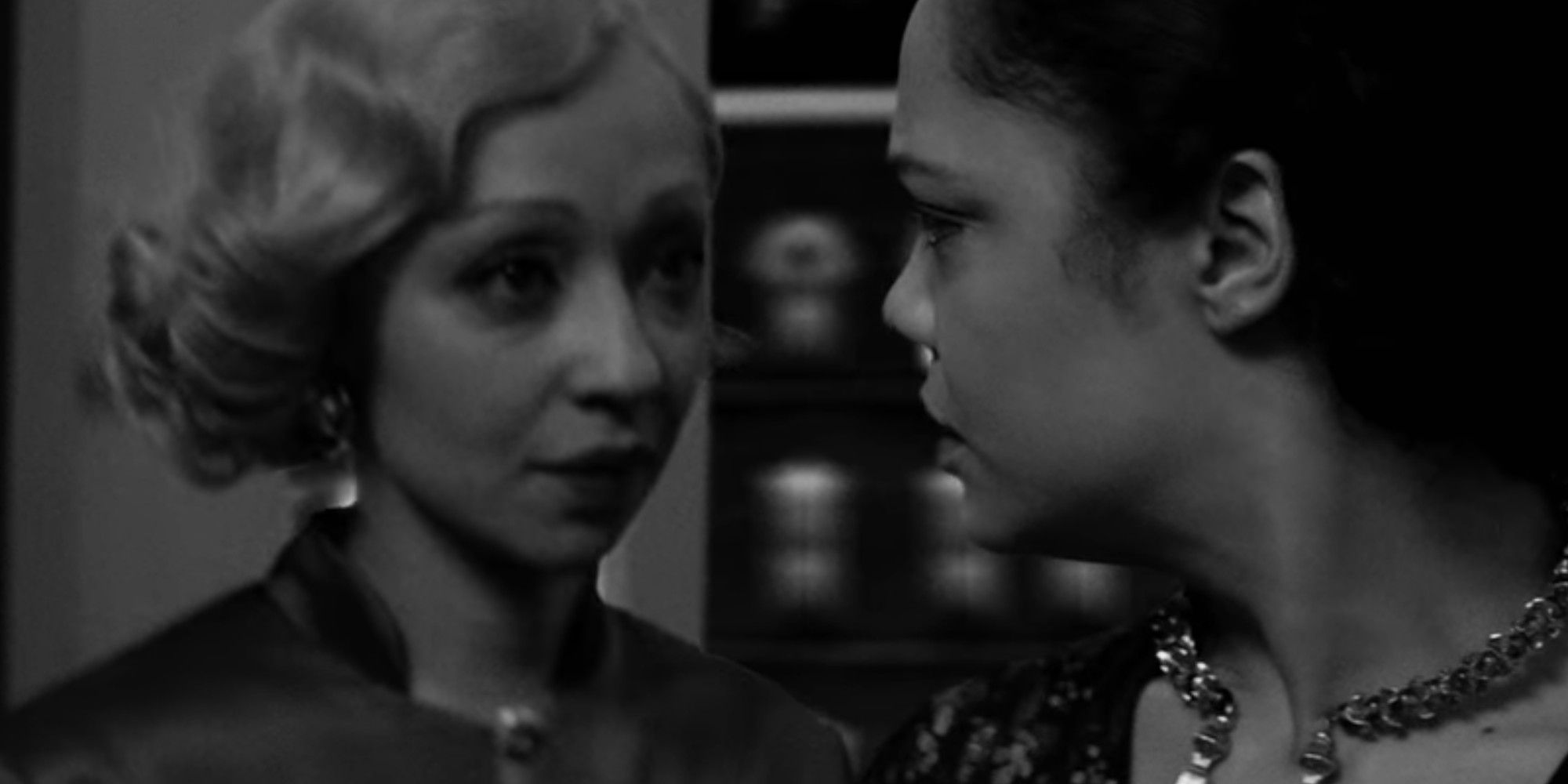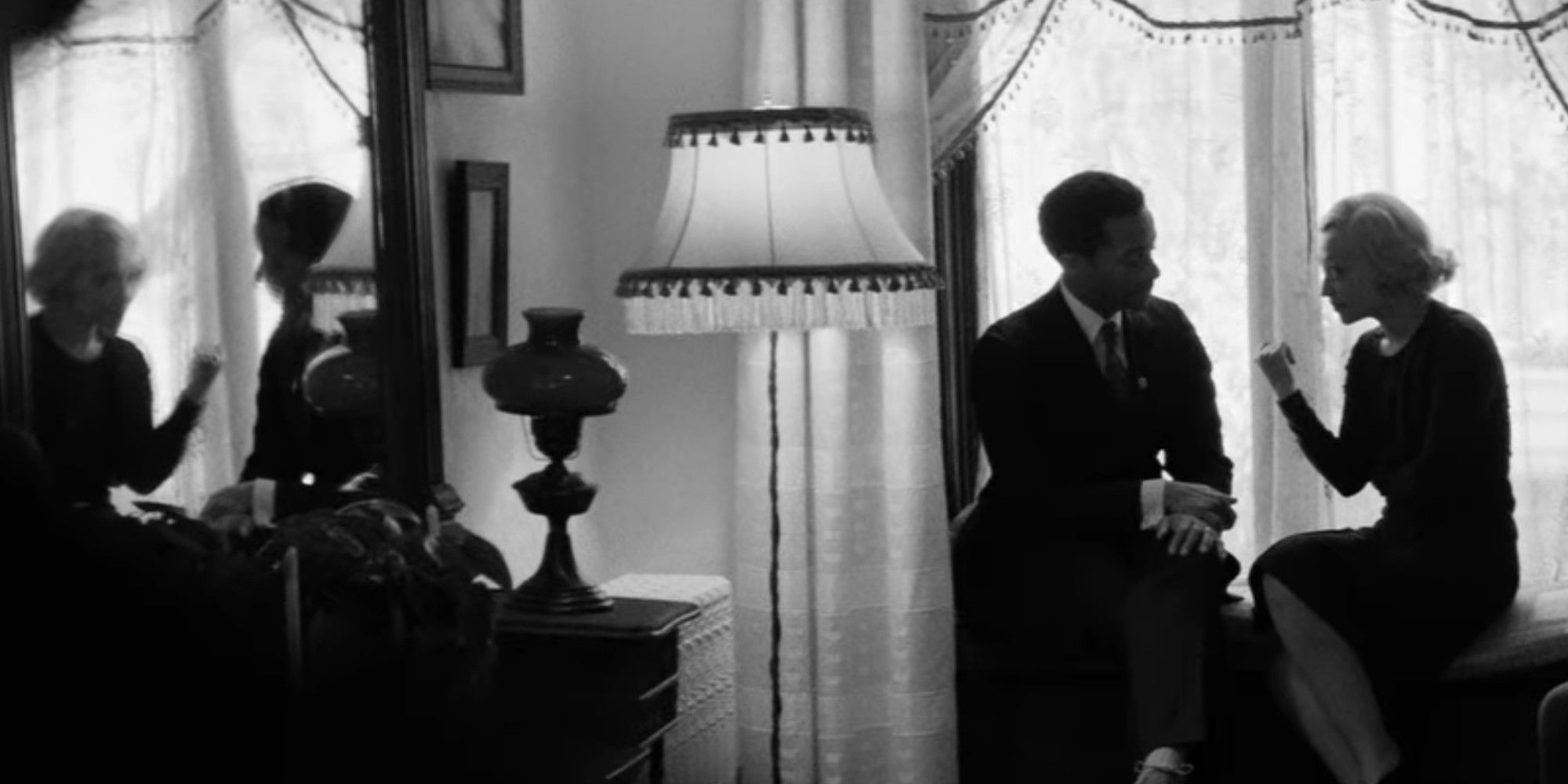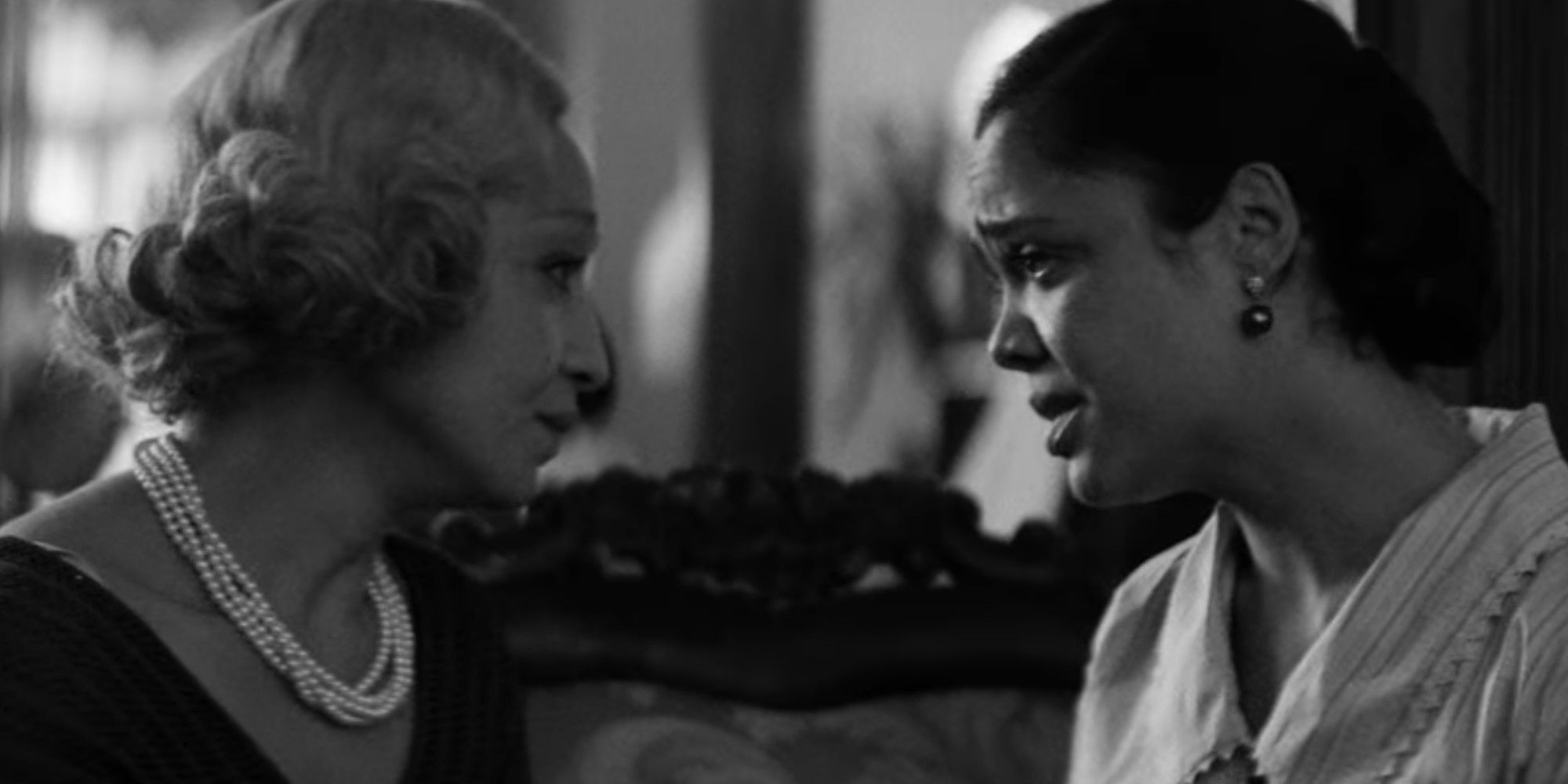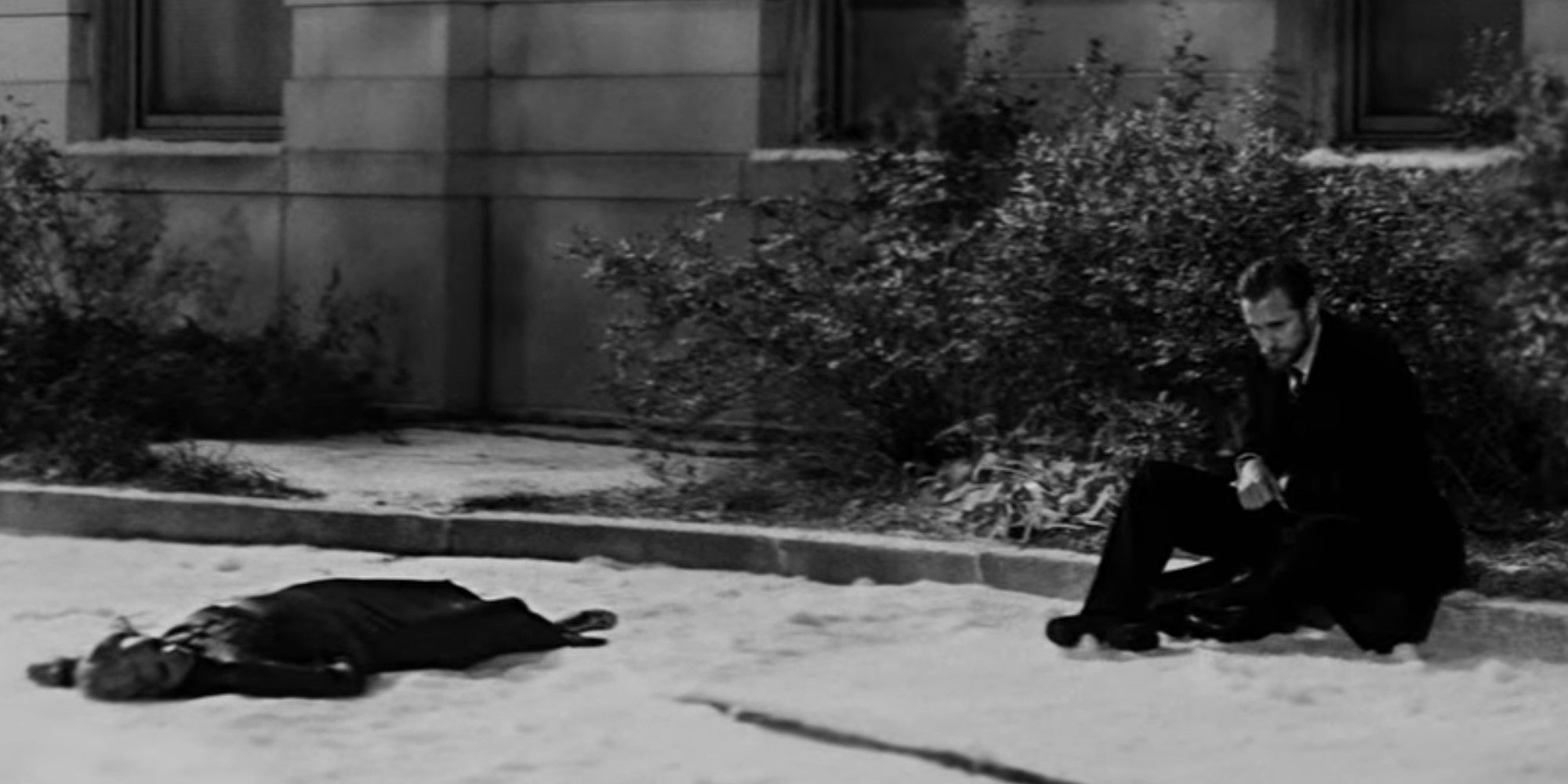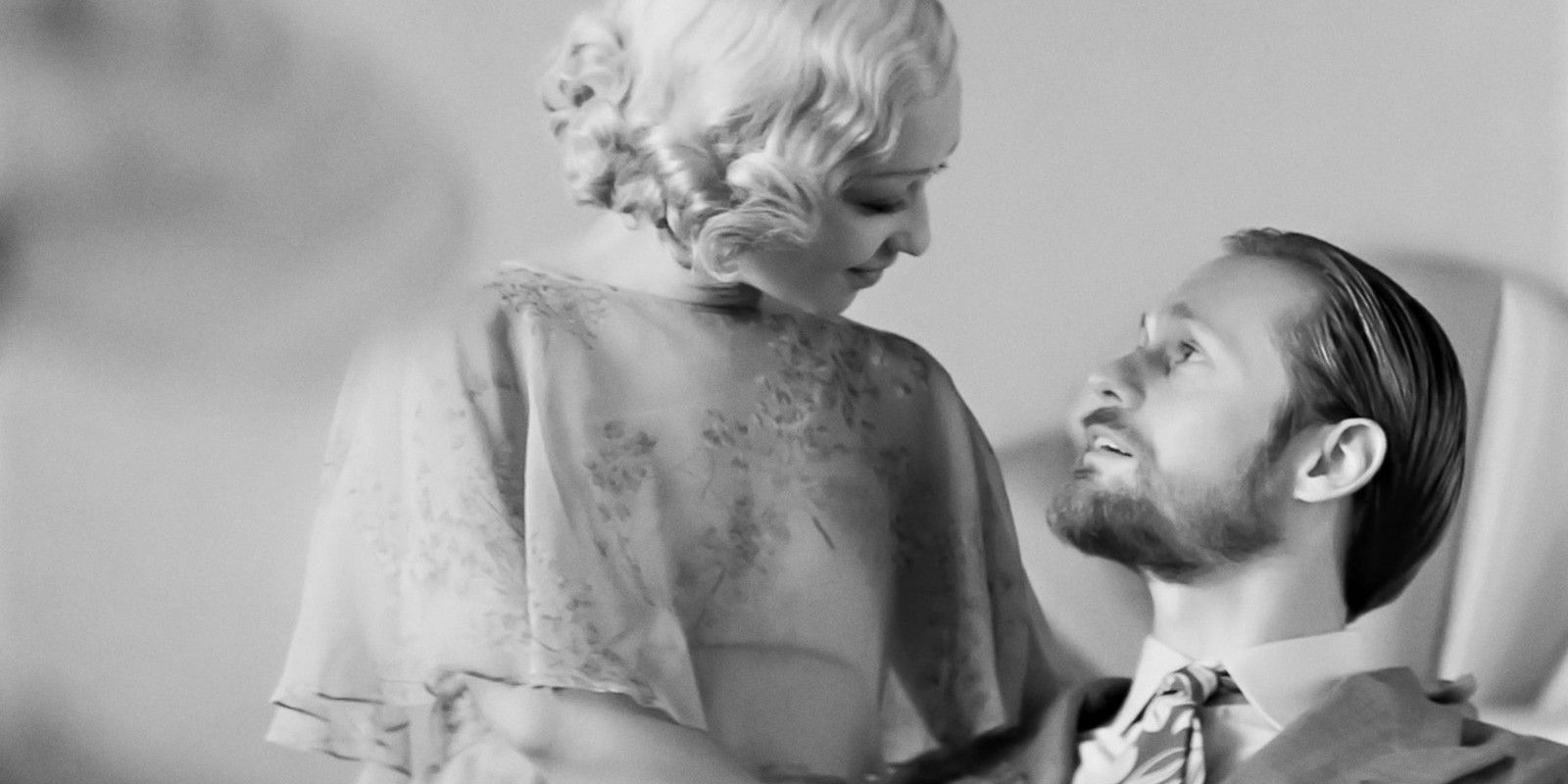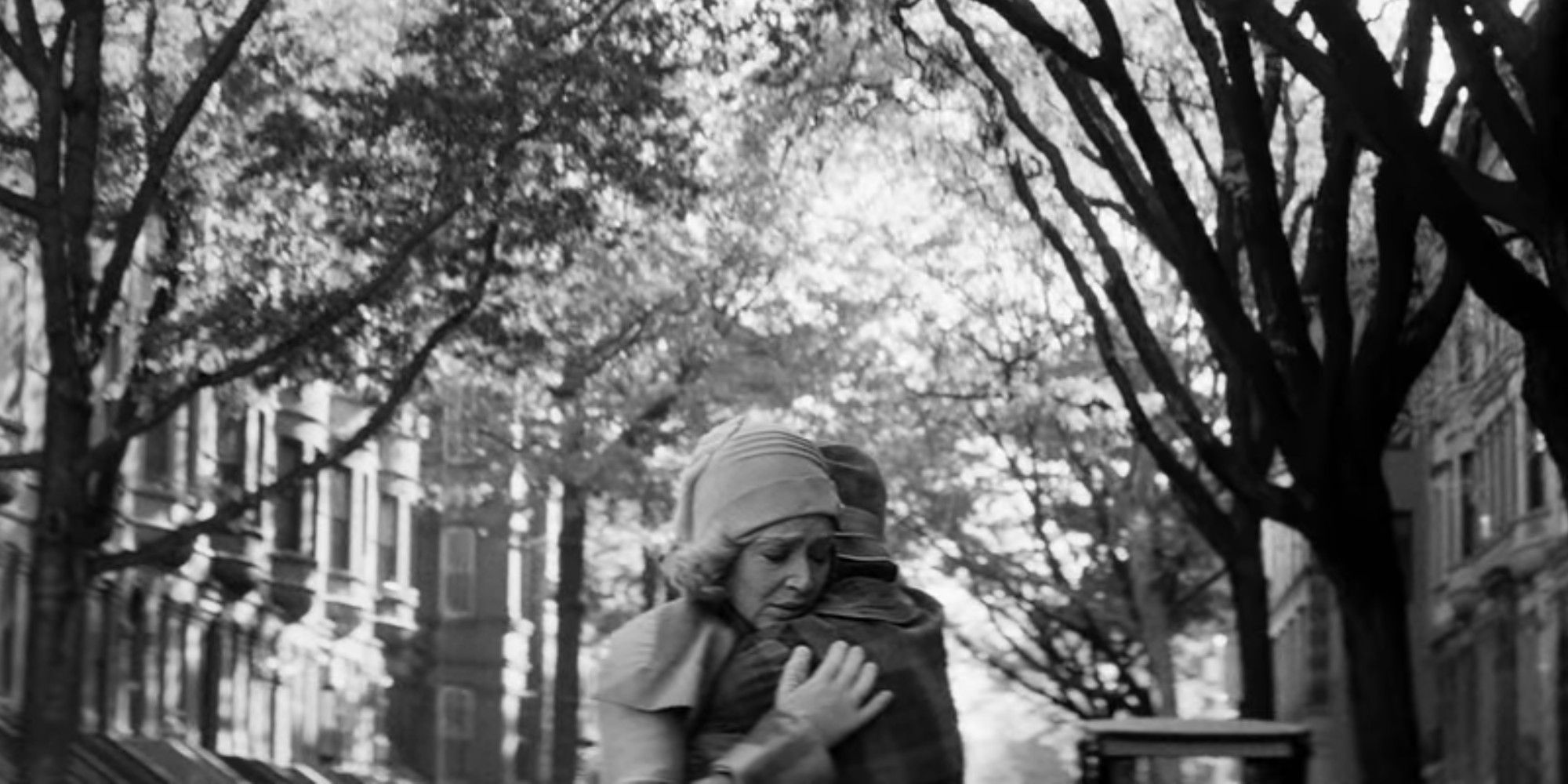Warning: This post contains spoilers for Passing.
Rebecca Hall’s Passing ends on a devastating yet ambiguous note — here is what Passing's ending means, particularly the impact of Clare's death. Based on the 1929 Nella Larsen novel of the same name, Passing is the black-and-white feature directorial debut of Rebecca Hall (The Prestige). Just like the novel, the film centers on the practice of racial passing, where lighter-skinned African-Americans pose as white to gain acceptance and avoid segregation. Nella's novel is based on pieces of her own life as a woman of mixed racial heritage. Racial passing became common in the 1920s as America was not a safe place for persons of color.
Although Passing had just been released in 2021, Hall started developing the script in 2008. After encountering Larsen’s novel, she immediately dived into her own family history and discovered that her grandfather was a light-skinned Black man who passed for "white" all his life, too. Aside from Hall’s personal attachment to the project, the film also benefited from Ruth Negga and Tessa Thompson’s creative inputs. Despite budget constraints and production issues, the movie has received “universal acclaim,” after its world premiere at the 2021 Sundance Film Festival, limited theatrical run, and streaming release on Netflix. Its stunning visuals and immaculate performances lead up to Passing's ending, which is marked by tragedy and loss.
Passing boasts an outstanding cast, led by Thompson and Negga, who play Irene Redfield and Clare Bellew, respectively. After a chance encounter, Irene learns that Clare has been passing as a white woman, even married to the wealthy yet racist John Bellew (Alexander Skarsgård). Finding this secret repulsive, Irene tries to distance herself from Clare, yet the latter keeps on ingratiating herself into Harlem’s Black community. Thompson and Negga both give stunning performances as the two leads of Passing's cast. Here is Passing's ending explained, exhausting the ambiguities deliberately left by the film.
What Happens In Passing's Ending
In Passing's ending, Clare longs to return to her roots and therefore latches onto Irene, her family, and her social circle. Soon enough, Clare takes over Irene’s life — her name becoming more significant for the Redfield kids, her presence more alluring and intriguing among Irene’s friends, and her absence more felt by Irene’s husband Brian (André Holland). Suspecting that Brian and Clare are having an affair, Irene is filled with jealousy, doubt, and anger. Then John discovers his wife’s true ancestry, and a confrontation ensues in Passing's ending, resulting in Clare falling out of a window to her death.
Did Brian & Clare Have An Affair?
In the black and white movie, Brian and Clare’s relationship is one of the major plot points that ultimately affects Passing's ending. Initially, because of Irene’s description of Clare, her past, and her passing, Brian is set on hating her. Finding her very dramatic, he is offended when he picks up that Clare somehow blames Irene for igniting her desire to be with her people. However, when Brian and Clare are together, there is a closeness that easily develops between the two. Over time, they even go out on their own, with Brian defending her from the remarks of Irene and Hugh Wentworth (Brian Camp, The Queen’s Gambit). Their blossoming friendship and possible romance plays a big part in Passing's ending as the consequences of it only bring the movie's slow simmer of tension to a boiling point.
There is no explicit confirmation as to whether Brian and Ruth Negga's Clare really did have an affair, aside from Irene’s growing suspicion. Since the audience only knows exactly what Irene does, it is easy to believe that the two are having illicit relations. On one hand, it actually might be true; even if the affair isn't physical, it's almost certainly an emotional affair they're having. From the onset of the film, it has been established that Brian and Irene have a conservative marriage, as Irene isn't comfortable talking about sex and race. Perhaps, with Clare, Brian has found someone willing to listen to him who does not screen his thoughts, so he then becomes genuinely attracted to her. After all, taking into consideration Irene’s earlier statement and Passing's ending, maybe Brian’s attraction is “plain exoticism,” an “emotional excitement over something strange or repugnant,” which is how Brian saw Clare originally. On the other hand, maybe André Holland's Brian and Clare are just good friends, and Irene is simply having malicious thoughts out of jealousy. However, this raises the question: who was Irene jealous of?
Was Irene Attracted To Clare?
In the movie, Irene and Clare were friends from childhood until the death of Clare’s father, which led her to move away from their community in Chicago and lose contact with her peers. Although at first, their reunion is nothing more than two women rekindling their friendship, it seems that the longer they are in each other’s lives, their platonic relationship evolves into something more — for Irene, at least. Like Brian and Clare’s affair, Irene’s attraction toward her friend is not explicitly confirmed in Passing. Nevertheless, Irene’s furtive glances hint at an affection deeper than friendship. Aside from the suggestive camera angles that highlight how Tessa Thompson's character Irene sees Clare’s features, the former occasionally blurts out compliments that contain a higher level of admiration and potential attraction. As well, their relationship plays a major role in Passing's ending.
These factors contribute to the Passing's ending, driving viewers to infer that probably, Irene has been jealous of Brian, and her feelings of suspicion about the two’s alleged affair are brought on by her possessive tendencies toward Clare. Moreover, perhaps her earlier conversation with Hugh refers to her own “emotional excitement” over her “repugnant” erotic longing. Eventually, these forbidden emotions lead to Passing's ending.
Clare's Death In Passing Explained
In the Netflix movie’s ending, John learns that his wife Clare is a woman of color, so he storms into Hugh’s party and confronts her. When Clare becomes aware of his presence in Passing, she positions herself near the open sixth-story window beside Irene. Just as John approaches Clare, Irene’s hand is seen on her torso, and she falls out of the window. What actually happened to her remains unknown — did she jump? Was she pushed, and if so, by whom? The movie makes Clare's death purposefully ambiguous as it only lends to the tragic nature of Passing's ending and the themes of the film itself. With tensions reaching a boiling point towards the finale it would've only cheapened the film and betrayed Passing's source material if how Clare died was outright shown.
Did The Husband John Push Clare In Passing?
It's unclear who pushes Clare in Rebecca Hall's Passing. In the Passing novel, the possibility of Clare jumping from the window was strongly implied, with the mention of “a faint smile on her full, red lips, and in her shining eyes” as she fell. However, in the film, there is a split second in which viewers do not fully see what is going on. Between John’s angry attack on Clare and Irene’s hand on her, the two are possible suspects, too, especially since both have their own motives. Feeling neglected by Brian, her sons, and even her own friends, Irene has a case for wanting to get rid of Clare to avoid having her life totally usurped and discard the confusion bubbling within her. Meanwhile, Alexander Skarsgård's character John admittedly hates Black people, so in turn, his feelings of hatred are transferred to his wife, heightened by years of racial hypocrisy and pretension. Adding to that are his feelings of betrayal and embarrassment, creating a toxic brew that leads to a sinister possibility found in Passing's ending.
In addition, their immediate reaction after Clare’s fall implies not only shock but also guilt. While Irene claims that Clare’s death is an accident in Passing's ending, she might also be covering up her crime or referring to how she did not intend to push her. Or, maybe she is telling the truth and the guilt is realizing the part she had to play in Clare's life leading to a miserable end. This reading is supported by Tessa Thompson's Irene and Ruth Negga's Clare sharing one last meaningful look before the incident, signaling Clare’s decision to jump. Knowing that her lies are blowing up in her face and she'll never be fully accepted by either world, it would be a tragic but eloquent end for her to choose to take her own life. There have been discussions for decades surrounding Clare’s fate in the classic novel, which was written only a few generations after the Gone with the Wind era of slavery and the Antebellum South. In the end, those who have watched or read Passing can only infer what truly happened to Clare.
The Real Meaning Of Passing's Ending
Rebecca Hall's 2021 movie is more than a black-and-white tale of race. Typically, a Black character who does not quite fit in is punished for conforming to society’s standards. However, in this case, Passing's ending sees Clare’s life end tragically because she wants to return to a life she has already escaped from. She has everything a woman of her age desires in life in that era: a husband, a child, a comfortable life, yet she is still unhappy. In the movie Passing, when she realizes that her fulfillment comes from socializing with the community she grew up in, she stops at nothing to achieve that, even going to extreme lengths. In Passing, the prize coveted is not whiteness and acceptance from the majority, but Blackness and the longing for a life lost, whether that may be for Irene or Clare.

